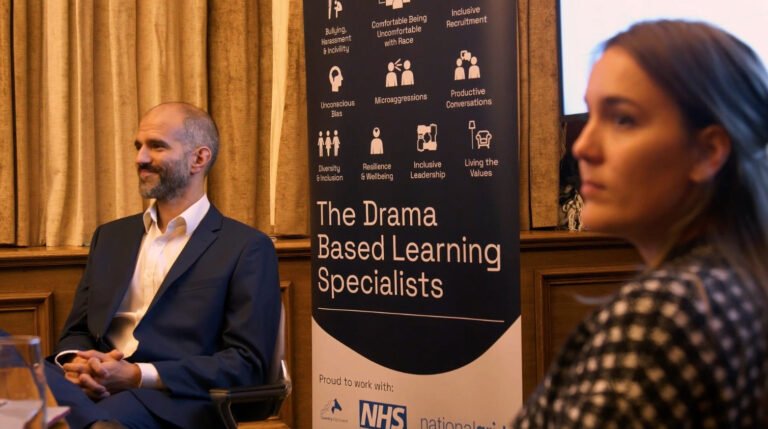
The modern world
It may sound like a gross exaggeration to suggest that survival depends on collaboration… but hear me out!
We are living in a VUCA world. If you are yet to have come across the acronym VUCA, it stands for volatility, uncertainty, complexity and ambiguity. It was originally introduced by the US Army War College to describe the landscape that the military has experienced since the 1990s, however, the term has also been adopted by the business world as it is an accurate reflection of the business landscape and how strategic leadership, communication and collaboration need to be optimised to counter these threats.
Perhaps the most recent and relevant example of the VUCA world we live in can be seen in global politics. And alarmingly, rather than countering the VUCA threats, it appears that the people in the positions with the greatest responsibility are providing case study after case study of the negative impact of not embracing collaboration and instead lighting the VUCA touch paper.
The obvious example is Donald Trump wanting to build a wall and stop certain people from entering America (amongst other things). Based on the Barrett Values Centre 7 levels of consciousness, (pdf) his behaviours could be seen as ones of self-interest, discrimination and intolerance, which are represented as the negative aspects of the lowest levels of consciousness. These psychological levels are normally reserved for babies and young children… now that is a scary thought!
Shifting attitudes
But let’s shift our focus to something a little more positive. In his excellent TED talk Howard Rheingold, paints a more optimistic picture around the fact that, by enlarge, leaders are increasingly aware that the old template based on the idea that businesses and nations succeed only by defeating, destroying and dominating their competition is no longer fit for purpose and instead they are embracing a new template based on co-operation, collective action and complex interdependencies.
Forward thinking organisations are willing to collaborate with their competition in order for both to benefit. Organisations are finding ways to overcome the prisoner’s dilemma.
What does this mean for you and what can you do?
But let’s now delve deeper and consider what collaboration and cross team communication means within an organisation. First of all, it’s worth considering the case for why this is important. On an organisational level, benefits include:
- Better results (higher profits, satisfied customers)
- Higher levels of employee retention
- Reduced performance issues
- Organisational learning and improvement
On a team level, benefits include:
- Creativity and involvement, the camaraderie of collaboration
- Engagement, satisfaction (dare we say fun)
- Greater responsibility, accountability
And on an individual level, benefits include:
- Greater effectiveness
- Opportunity to differentiate yourself, broaden your influence
- Increase your innovation skills and produce new ideas
- Involvement in complex work, and the ability to learn from others can also be crucial motivators
So what can organisations do to optimise their collaborative efforts and foster an environment where openness, trust and curiosity are embraced?
A good starting point is to consider and effectively manage the following 6 areas:
Clarify the purpose. Make sure people are aware of why cross team collaboration is a good idea and encourage them to connect with the benefits it brings to them, the team and the organisation.
Bring together the right people in the right places. Having an awareness of your weaknesses and the strengths of others will ensure your blind spots are covered and you are capitalising on the right resources in the right places.
Cultivate Trust. Trust is a fundamental ingredient in effective collaboration and communication. But don’t confuse it ‘liking’ or ‘agreeing’ with someone as you don’t necessarily need either of those to trust someone. What you do need is the ability to have difficult conversations, to listen, to be heard and to find a common ground from where action can be taken.
Clarify accountabilities. As with the need for people to have a connection to broader purpose behind collaboration, it is also important for everyone to know what part they play, what is expected and when its expected. Clarity in this area ensures that gaps aren’t missed or things aren’t duplicated.
Create an infrastructure for sharing information and learning. In order to facilitate the sharing of information, consider what infrastructure is in place. Utilising the right tools supports the open flow of information in all directions (not just from the top down) and enables continuous clear communication channels.
Be comfortable with the unknown. Change equals progress and therefore clinging to ‘the way things are done around here’, whilst familiar, can also be detrimental to facilitating new ideas and innovation. Therefore, collaborative communication should be approached with an open mind, with a sense of curiosity and an ability to ask good questions that challenge the status quo and shift thinking into uncharted waters.
Next steps
Based on delegate feedback in our training programs we consistently hear that the challenges related to coordination, cooperation, communication and collaboration are of the utmost importance and addressing them would have a significant positive impact across the business.
Now more than ever, we all need to take responsibility to ensure we are not languishing in the lowest levels of Barrett’s consciousness scale with Donald Trump, but instead making the shift from self-interest to common good.
“It is at the intersection of self-interest and shared interest that effective collaboration takes place.”
Failure to navigate this path and effectively capitalise on collective resources could just mean the difference between survival and extinction.
Based on market feedback and demand for development in the area of cross team collaboration, Enact Solutions are creating a highly innovative and engaging new product to address these challenges and provide an experiential learning solution to create positive change within organisations. If you are interested in increasing productivity, creativity and engagement then visit our website and register to attend one of our upcoming free events or contact me on +44 (0)7590 848 541 to discuss how this or any of our programs can benefit your organisation.



